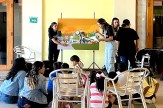Summer Bridge Scholars Program builds bonds, promises greater retention rates among first-year students
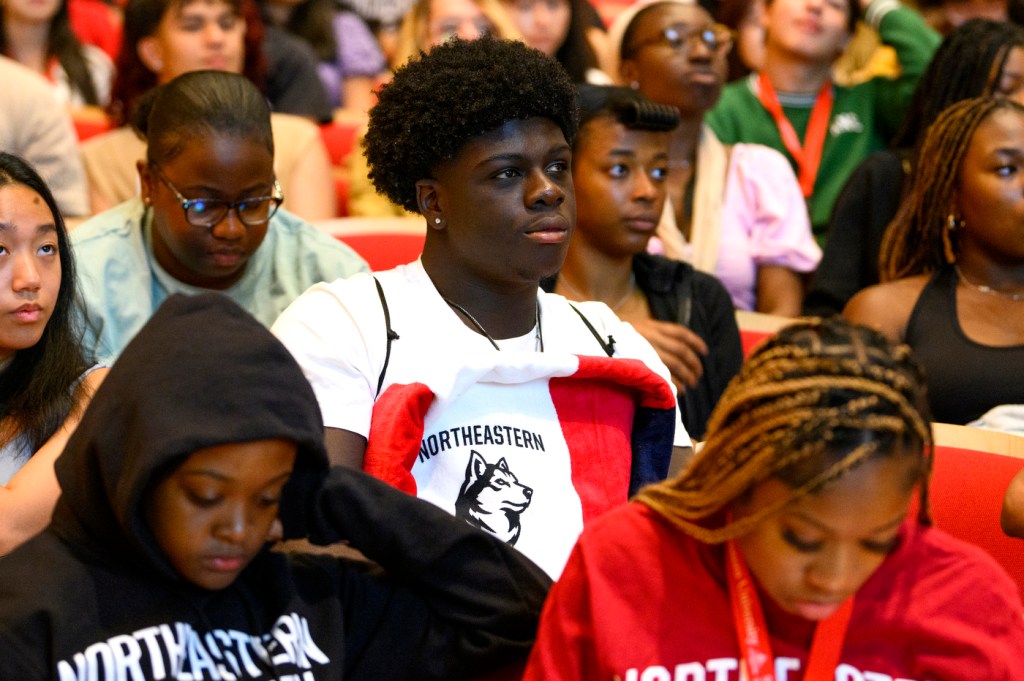
Choosing a college was a big decision for Jonathan Bush, a soon-to-be first-generation college student.
Thinking about higher education, Bush, 18, expected that he would stay put in his familiar environment in Houston and pick a local school.
However, his horizons expanded and he learned about Northeastern University when he was admitted into EMERGE—a free program at the Houston Independent School District that helps first-generation and low-income students attend and graduate from the nation’s top colleges and universities.
After touring a few other schools, Bush, who will be attending D’Amore-McKim School of Business in the fall, put Northeastern at the top of his list and declared an early decision.
“I ultimately picked Northeastern University for its extensive co-op program,” he says.
He was also impressed with Northeastern’s social media efforts.
“They really take inclusivity and diversity as really important, and I can see that through the things that they post, through the events that they have,” he says. “I spoke to multiple students that I’d found online, and they truly do love it here.”
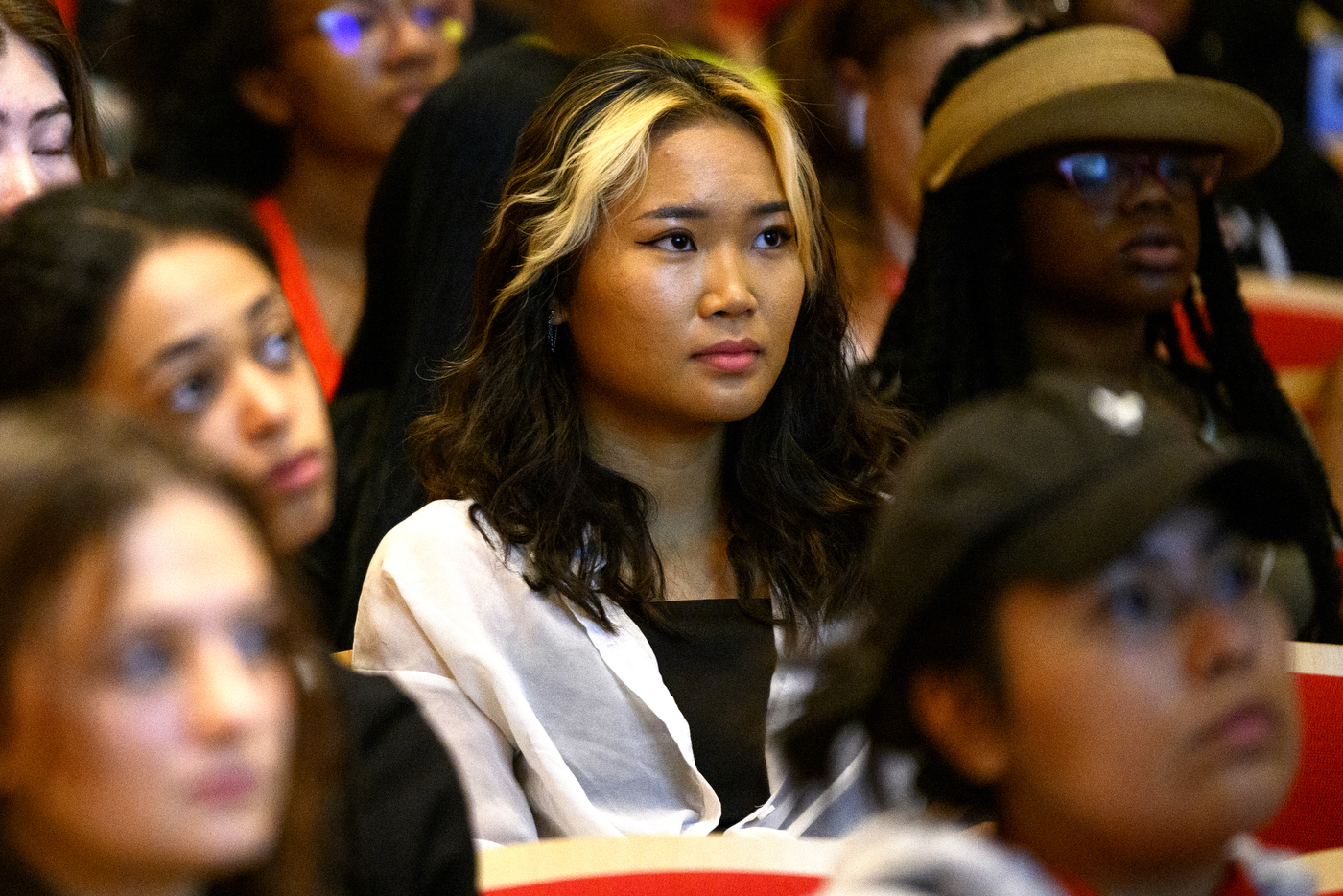
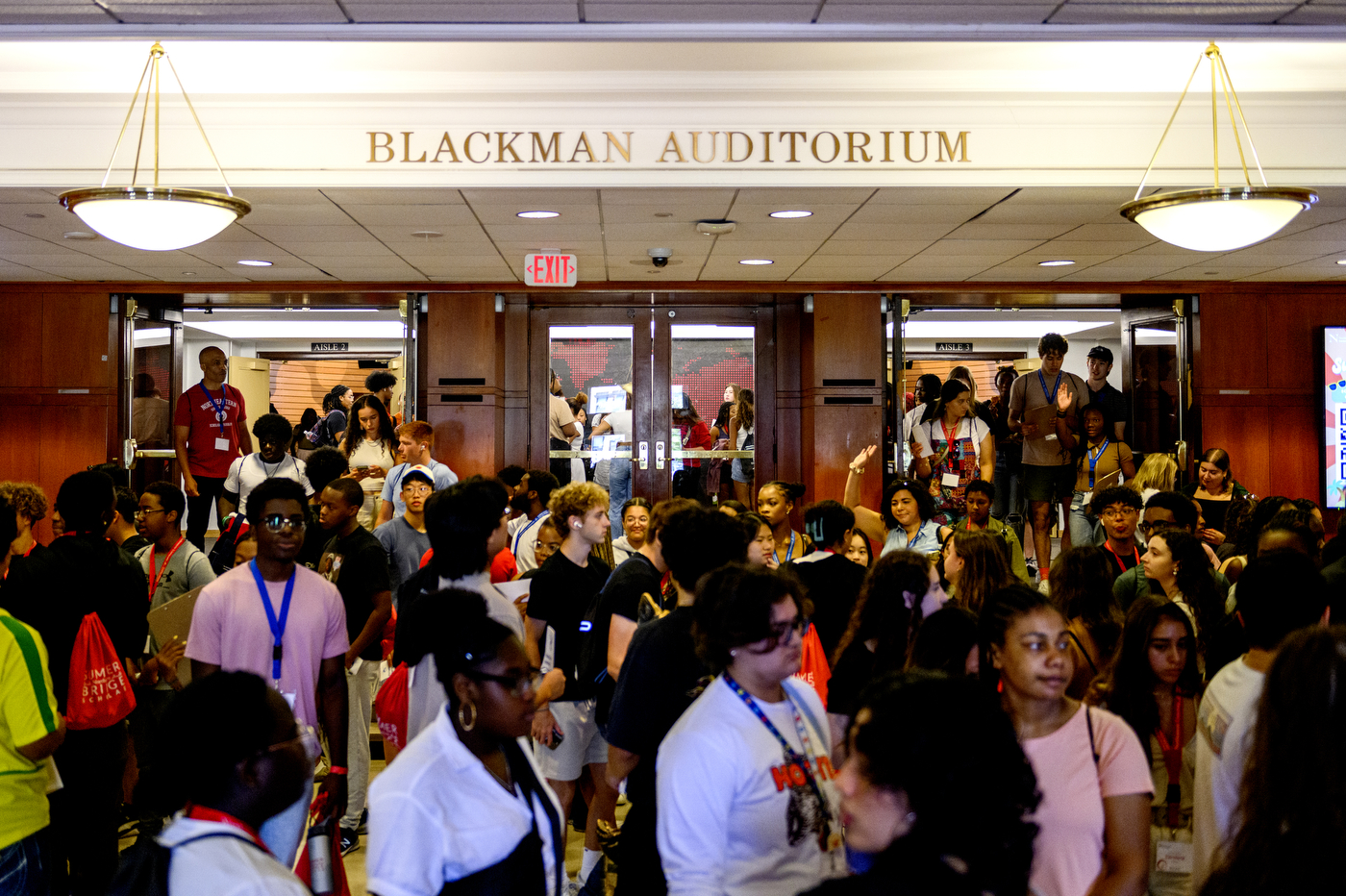
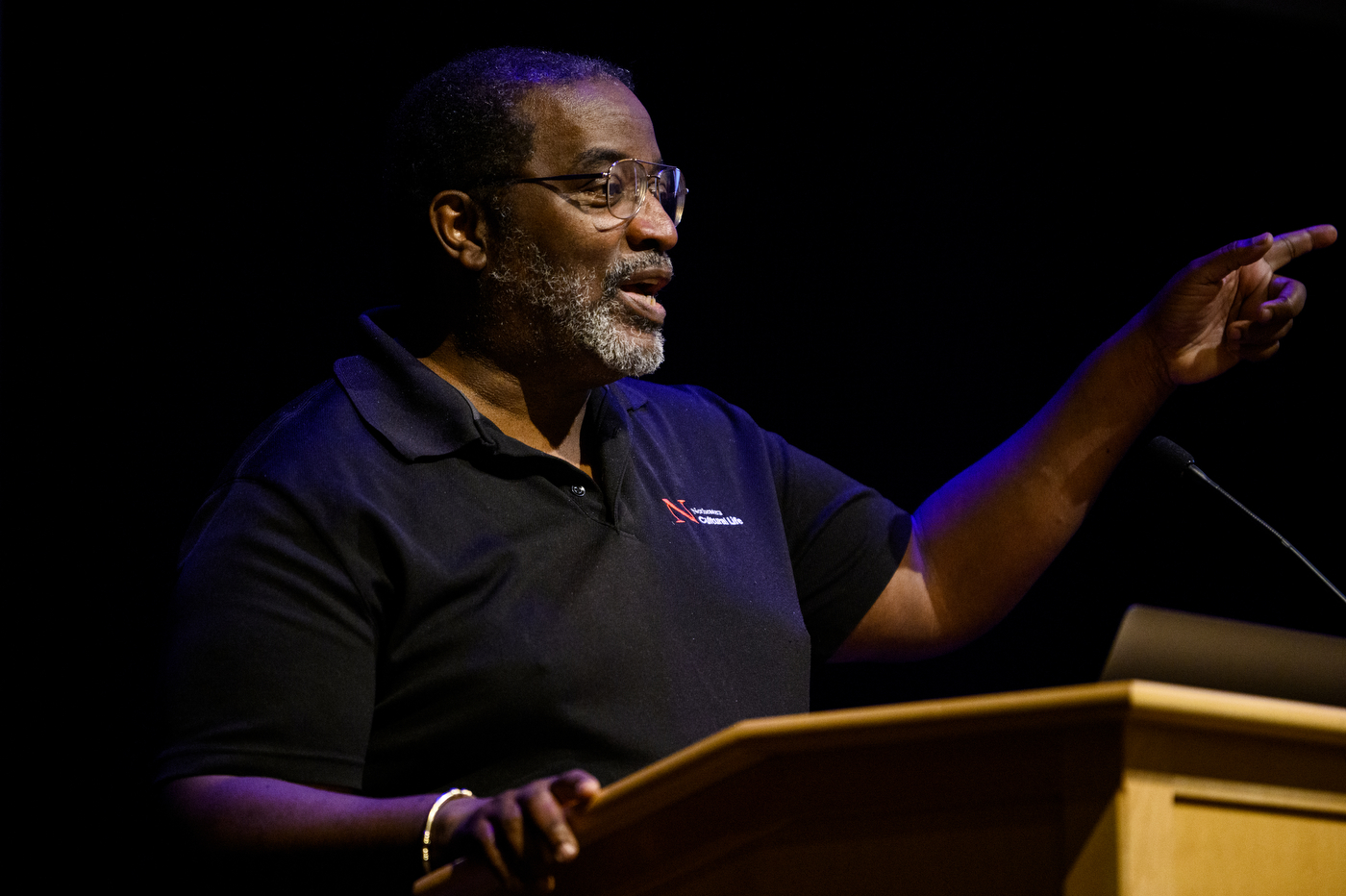
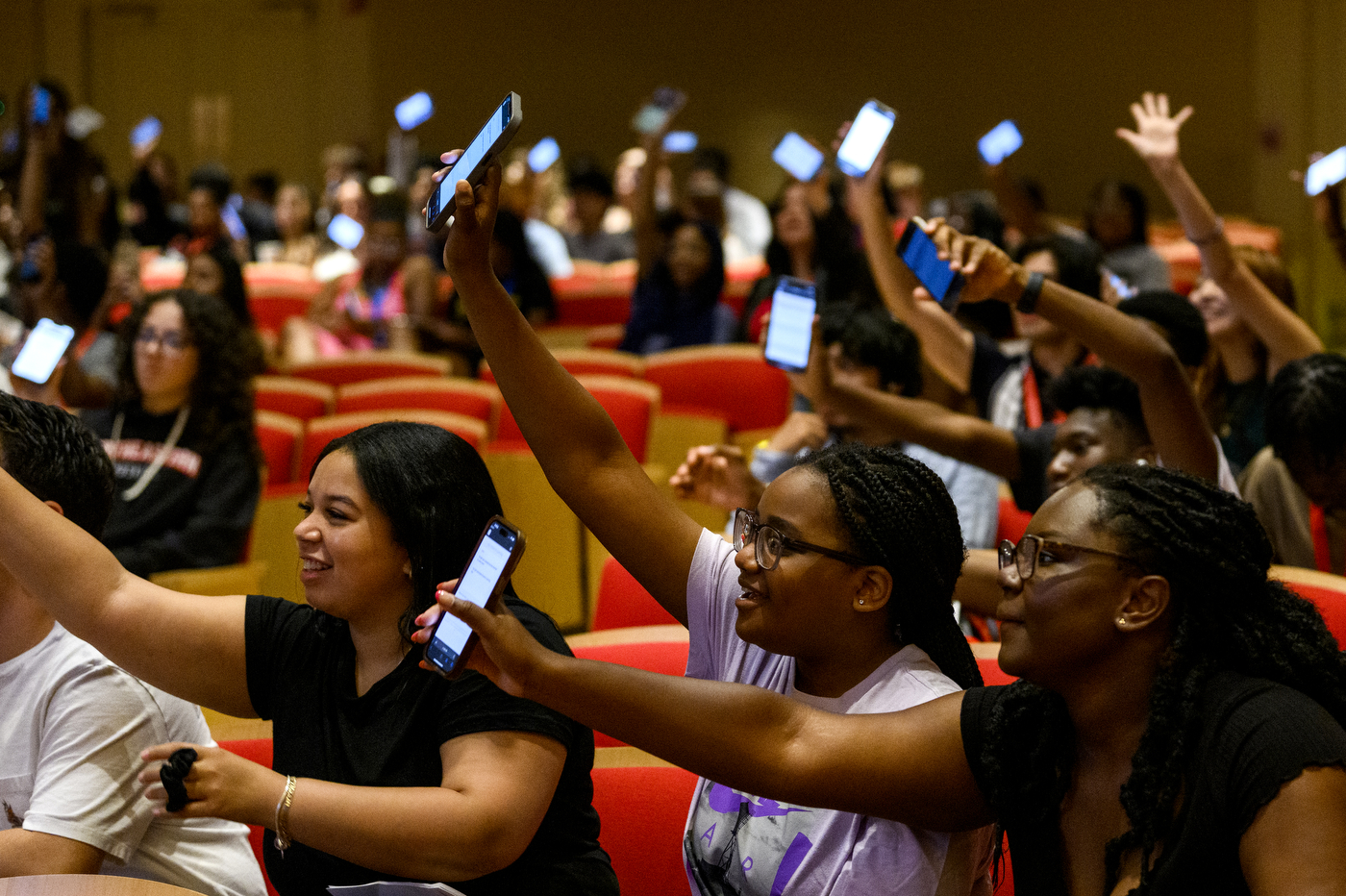
Bush was among 250 first-year students who spent a week in Boston, participating in the 2023 Summer Bridge Scholars Program, designed to help them begin their Northeastern journey. It offered a preview of the academic experience, insight into the valuable resources and opportunities to meet new friends and mentors before the school year starts.
“The Summer Bridge Program really broke down my shell,” Bush says. “I love how open everybody is. And I love how the event is coordinated for us to be able to connect with everybody and to learn more about the institution that we probably wouldn’t be able to do on a larger scale [otherwise].”
It can be uncomfortable for an African-American male to be in a new, predominantly white space, Bush says. Meeting peers through the program, however, eased him into it.
“We are able to learn about each other’s cultures and diversity and able to learn that we are different, but same at the same time,” he says. “And then we’re able to talk about each other’s struggles.”
The Summer Bridge Scholars Program was conceived by Richard Harris, associate dean of Diversity, Equity and Inclusion and director of Northeastern University Programs in Multicultural Engineering. It started in 2002 with just 11 first-year students set to attend the College of Engineering that fall. The college institutionalized it and made it a budget item in 2015 and in 2016 the program was expanded to the College of Science.
George Floyd’s murder in May 2020 became a tipping point for the program, says Rachelle Reisberg, assistant dean for undergraduate curriculum and students in the College of Science and the program’s leadership team member. Through discussion groups and town halls, Northeastern President Joseph E. Aoun and his leadership team learned from students how helpful the Summer Bridge Program was in forming a cohort and supporting the students. Aoun made the decision to expand the program to all colleges.
“This program builds bonds that are going to last a lifetime, but most importantly, gets them off to a tremendous start for their freshman year, because the freshman year is a huge transition in anybody’s education,” Reisberg says.
This year, Northeastern was able to add one full day to the program, which took place from July 25 to July 29, says Linda Ayrapetov, associate director for student programs. There was more college-specific programming on the agenda, which included class previews, college breakout sessions, diversity, equity and inclusion sessions and activities, and exploration of community involvement groups and support resources.
Students had the opportunity to visit such affinity centers on campus as the John D. O’Bryant African American Institute, the Latinx Student Cultural Center, the Asian American Cultural Center and the LGBTQ Resource Center.
More than 50 members of the Northeastern faculty and staff participated in organizing the program this year, from budgeting expenses to developing the curriculum and organizing events to handling logistics and housing.
“I think people saw the success of it last year, and really wanted to join in and make the efforts greater,” Ayrapetov says.
The program was completely free for the students and fully financed by the university.
Martin Dias, one of the program’s leadership team members and associate teaching professor of Supply Chain and Information Management at D’Amore-McKim School of Business, found it incredibly encouraging to see the students excited to be at Northeastern and appreciative of the opportunity to participate in the program.
“Summer Bridge Scholars Program is one of those milestone life events that I believe will put students on a different life trajectory, that it is a kind of inflection point for them,” Dias says. “For some, it’s just sort of a slight acceleration and for others, it is completely transformative.”
He points out that the program went on in the atmosphere of camaraderie and gratitude. Dias could see the students already establishing a community within the greater Northeastern community that they will meet in the fall.
Raiana Sumpter, 18, of Boston, says that thanks to the program she was able to get close already with many people who will have different majors. She chose to study environmental engineering at Northeastern because she always liked math and science and wants to work on improving environmental injustices in Black and brown communities.
“Because of the engineering major, typically, I’m the only Black girl [in the room] so it can be hard to meet people that look like me,” she says. “This has been really important for that.”
Dias noticed that having just recently met one another, the Summer Bridge scholars were already developing trust and revealing their hopes and fears. In one such case, when a student shared their fear of failure in the fall, their peers and staff of the program were able to come together and strategize ways to ensure that they are successful as Northeastern students.
“I think not only will we experience greater retention with this group of students because now they have a community,” Dias says, “But also, they’ll be more likely to tap into the resources that are available to them so that they can maximize their potential.”
Jonathan Bush has found additional reassurance in his choice of college from peer mentors, who were a great addition to the Summer Bridge program, he says, and many of whom had similar backgrounds to his own.
“To be able to sit here, talk to them, build connections with them and hear the student perspective of this program has been ultimately life changing,” he says. “I feel way more comfortable knowing that they went through the ropes and that they came out of it great and still loving the institution. I just needed that reassurance and that reassurance is everything to me.”
Alena Kuzub is a Northeastern Global News reporter. Email her at a.kuzub@northeastern.edu. Follow her on Twitter @AlenaKuzub.



